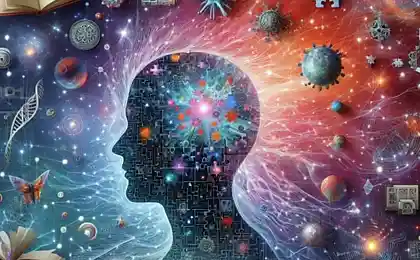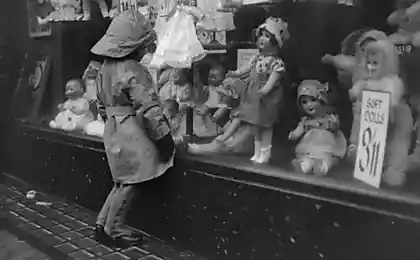372
A guide to psychology. Issue 6. “Family and Parents: How Our Individuality Is Formed”
Description: This article describes how family and parents shape our identity. The author examines the influence of parental strategies, family values and intergenerational ties on personal growth and worldview.
List of all articles in the cycle

Introduction
Remember who first introduced you to the basic values of life, explained the principles of behavior among people.
And showed me why you can forgive offenses? In most cases, these important lessons we learn in childhood from those who
Who replaces the whole world, the family. Parents (or other loved ones) teach us to talk.
Know the boundaries of what is allowed and understand how to interact with the surrounding society. At the same time,
In each family, there are unique conditions and traditions that form personality future adult.
What is the importance of family atmosphere for our psychological development?
Why do people who grow up in the same family often have different personalities?
The answers to these questions lie in a subtle combination of genetics, family rituals, emotional closeness.
and social and cultural factors. In this article, we will look at the key aspects of the influence of the family on the individual.
We will analyze modern scientific theories and try to understand what lessons of childhood pass with us into adulthood.
Main part
The role of the family in early child development
Childhood is the time when the basic structures of our personality are laid.
the ability to perceive the world as a safe or dangerous place, the level of self-esteem,
A tendency to trust or distrust other people. According to the theory attachment.
Developed by psychologist John Bowlby, a child who receives stable emotional support from parents.
It creates a stable relationship in which you feel safe.
This has a positive effect on his ability to build trust in adulthood.
If the parents are often absent emotionally or physically, the child may develop an anxiety disorder.
Or the avoidant attachment model. Subsequently, this model can manifest itself in difficulties with communication and intimacy.
For example, a person who lacks parental warmth may experience a constant sense of insecurity.
They are afraid of being rejected.

Style of education and personality formation
Research (for example, the work of a psychologist) Diane Baumrind) indicate that the style of education directly affects
It's about how the baby grows up. There are several key styles:
- Authoritarian style. Parents set strict rules, do not take into account the views of the child.
Often forms in children high anxiety, isolation, or, on the contrary, an aggressive reaction to external pressure. - Authoritative style. It's based on clear but flexible rules where the child has the right to vote.
Parents show understanding and care. Children in such a family grow up to be more independent, confident and open to dialogue. - Liberal-acceptable style. Parents avoid restrictions by giving the child almost complete freedom.
On the surface, it may seem that this kind of education creates the conditions for creativity.
However, without reasonable boundaries, the child sometimes loses orientation and does not learn discipline. - Ignoring style. Parents are almost not involved in the child’s life, absorbed in their own problems
Or they just don’t understand their role. As a result, there is no basic sense of security, and the child
develops without reference points, easily succumbing to the influence of the environment.
Nevertheless, the prevailing style sets the tone of the child-parent relationship and directly influences that,
what values and strategies The child will take with him into adulthood.
The influence of family values and traditions
Each family possesses a “cultural capital” that includes traditions, beliefs, and beliefs.
philosophical or religious beliefs. At first glance, this may seem like an insignificant “background” of life.
But in fact, it's family rituals -- holidays, dinners, conflict resolution -- that define us.
behavior pattern.
If it is customary to discuss problems at the family table in the house, the child's opinion is listened to.
He will probably grow up to be more open to dialogue. If any emotional manifestations are suppressed,
Such a person may have difficulty expressing feelings as an adult.
Family values are sometimes passed down from generation to generation, turning into a kind of “matrix”:
How to build a relationship with your spouse, who is considered an authority, whether you need to protect your independence by any means.
Or, conversely, rely on a collective decision. We learn these things from childhood.
But we don't always realize their power until we're confronted with the "other world," like marrying a human being.
whose family traditions are very different from ours.
Siblings: Why are brothers and sisters so different?
It is often observed that even in one family children are radically different.
In the course of research related to birth-order (References to the work of Frank Sulloway)
It has become clear that firstborns are more likely to take on leadership roles, and younger children are more likely to engage in freer, more experimental behavior.
This is due to the fact that parents have to adapt to different children in changing circumstances.
In addition, older children usually receive more attention from adults in the early years of life.
The younger ones grow up in an already “formed” family environment.
Brothers and sisters often compete for the love and recognition of parents, forming unique strategies of behavior.
One becomes an A.D.A., the other a company joke, the third withdraws if he feels his contribution is overlooked.
From such “role patterns” later grows our attitude and self-esteem.

Family conflicts and their impact
Conflict is an inevitable part of any family system. However, it is important how parents and children
Learn to solve these conflicts. If adults resort to violence (physical or emotional),
The child can learn a destructive pattern of interaction. On the contrary, if the conflict
Solved through discussion and mutual concessions, children understand that problems can be “talked”
Make compromises without destroying relationships.
Psychologists argue that sentiment A child is the key to a healthy personality.
Respected scientific sources, in particular research on family psychology (see Wikipedia),
Even in moments of quarrel, parents can set an example of constructive dialogue.
Recognizing the emotions of each other and the child, trying to understand the root of the problem, and not just suppress the voice of dissent.
Conclusion
The family is the first social space in which our attitude towards ourselves and the world is formed.
Parents have a huge impact on development emotionalityThey set patterns of behavior.
They transmit values and traditions. This is where we learn how to respond to conflict, how to receive and give love.
We learn to trust or, conversely, to be suspicious and withdrawn.
The effects of these “childhood lessons” can stay with us throughout our lives, affecting our career choices.
style of communication, models of romantic relationships and much more. Understanding how parents and the family environment
They lay basic psychological “bricks” in our personality, open the way to conscious self-development.
If you faced a tough or indifferent attitude as a child, this is not a life sentence:
Awareness of such experiences helps to rewrite some destructive scenarios.
On the other hand, if you are a parent yourself or intend to become one, knowledge of the principles of upbringing and the influence of the family.
Your child’s personality may be the best investment in your future. The family is not just a blood relationship.
It's also the daily work of creating an atmosphere where everyone feels loved and valued.
So we pass on to the next generation not only genes, but also cultural codes.
contribute to the formation of a harmonious, self-confident personality.
Glossary
Attachment
A deep emotional bond formed between a child and a parent (or other caregiver) that affects a person’s future relationship.
Diane Baumrind
American psychologist who developed a classification of parenting styles (authoritarian, authoritative, liberal, ignorant).
Birth order
A theory suggesting that older, middle and younger children in a family have different psychological characteristics due to different parenting experiences.
Conflict
A clash of opposing interests, values or views. In a family context, it can serve as an indicator of problems in communication and emotional connection.
Emotional sphere
The system of feelings and emotions of a person that determines his reaction to stress, relationships and external stimuli.
Family values
The set of beliefs, rules and traditions that are characteristic of a particular family and determine its attitude to life and the world.
A guide to psychology. Issue 5. Personality: Why We Are So Different
A guide to psychology. Issue 7. Friendship and Trust: Gaining a Close Circle























